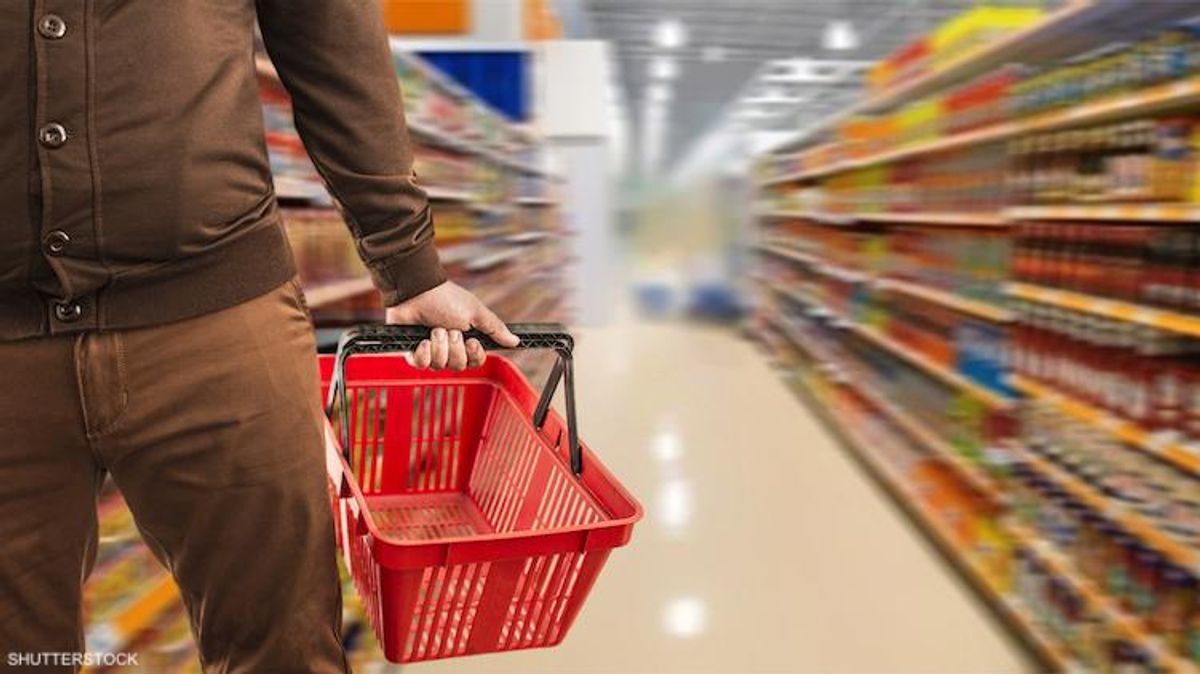Politics
Here's How Trump's Food Stamps Rollback Impacts LGBTQ+ People

One in four LGB adults have used the SNAP system.
December 05 2019 12:08 PM EST
May 31 2023 4:31 PM EST
By continuing to use our site, you agree to our Private Policy and Terms of Use.

One in four LGB adults have used the SNAP system.
The Trump administration will begin denying food to 2.2 million families in need, with new food stamp rollbacks expected to disproportionately impact LGBTQ+ people. The move comes as the United States Department of Agriculture has proposed limits on eligibility for food stamps, as well as new restrictions on calculating utility costs.
Currently, people who cannot afford food but are eligible to work are limited to receiving only three months of benefits within a three-year period if they do not meet a 20-hour work requirement. States where unemployment is unusually high and jobs are particularly scarce can waive that limitation, providing assistance for a longer duration through the Supplemental Nutrition Assistance Program (SNAP).
Under the Trump administration's latest proposal, states would have less leeway to waive the limitation. Governors would be able to overrule waivers, and unemployment in the state would have to exceed six percent.
In addition, eligibility will be based on historical data, rather than current data, so families in need will be unable to obtain support during economic downturns.
Under further rule changes, citizens will no longer be allowed to fully factor utility costs into their expenses, with the program essentially treating money spent on electricity during the winter as an optional luxury. Participants may be forced to choose between paying for heat or food.
That's expected to reduce spending SNAP spending by $5.5 billion, while denying food to around 688,000 people.
Coupled with other proposed restrictions on the programs, estimates suggest that millions will find themselves unable to afford to eat, and the cutbacks stand to disproportionately impact LGBTQ+ communities across the country.
According to the Williams Institute, about one in four lesbian, gay, and bisexual adults have used the SNAP system, compared to one in five non-LGB adults. If estimates from The Williams Institute suggest that there are around 10 million LGB adults in the United States, that means 2.5 million queer people could potentially be affected by this decision.
Given those statistics, the national LGBTQ+ nonprofit GLAAD tallied the food stamps rollback as the Trump administration's 132nd attack on queer and trans people since January 2018.
"These numbers don't even count [LGBTQ+] youth or trans people who may be even more vulnerable to food insecurity," tweeted Sarah Kate Ellis, president and CEO of GLAAD, when the rollbacks were initially floated last year. "The Trump administration is actively turning its back on marginalized communities."
Veterans, women, and indigenous people are also expected to be disproportionately impacted by starvation under the administration's new plan.
USDA Secretary Sonny Perdue says the rule change will motivate people to find high-paying jobs. But there are no provisions in the plan to train workers, to connect them to job opportunities, or to improve access to stable employment in regions where jobs simply aren't available.
Experts say the new rule will deepen income inequality, denying nutrition to people while they search for work. During public comment on the proposed change, feedback was overwhelmingly negative.
The new restrictions will go into effect in April, giving families time to search for other sources of food and to stockpile nonperishable items.
RELATED | Trump Administration Omits LGBTQ People From 2020 Census
Beware of the Straightors: 'The Traitors' bros vs. the women and gays